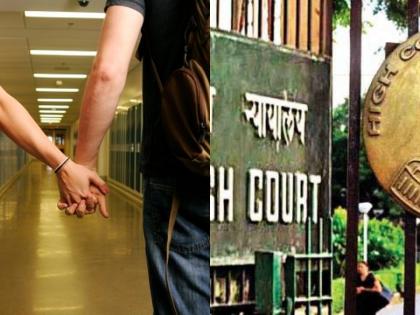Delhi HC: Legal Age of Consent Should Protect Minors, Not Criminalize Teen Love
By Lokmat English Desk | Updated: February 19, 2025 13:50 IST2025-02-19T13:49:57+5:302025-02-19T13:50:19+5:30
The Delhi High Court emphasized the importance of the legal age of consent in protecting minors while also allowing ...

Delhi HC: Legal Age of Consent Should Protect Minors, Not Criminalize Teen Love
The Delhi High Court emphasized the importance of the legal age of consent in protecting minors while also allowing teenagers to express their feelings and engage in relationships without the fear of facing criminal charges. The court stated that the main goal of the law should be to prevent exploitation and abuse, rather than to punish consensual romantic relationships.
Recognizing love as a basic human experience, the court affirmed that adolescents have the right to develop emotional connections. Justice Jasmeet Singh pointed out that the law should adapt to acknowledge and respect these relationships, as long as they are consensual and free from pressure. The court also stressed that both society and the legal system should support young people's rights to engage in romantic relationships while ensuring their protection from abuse.
Additionally, the court called for a compassionate approach that focuses on understanding rather than punishment in cases involving teenage love. In this specific case, the young woman testified that her relationship with the respondent was consensual, including their physical interactions. She confirmed in court that she chose to be with him willingly.
The evidence presented showed that their relationship was voluntary, and the medical report did not support the prosecution's claims, as it revealed no signs of injury or resistance. Consequently, the court concluded that their relationship was consensual.
Also Read: J&K stares at water crisis, CM Omar Abdullah calls for collective effort
This ruling came after the Delhi Police appealed a trial court's decision to acquit the respondent under Section 4 of the POCSO Act. The trial court had determined that the prosecution did not prove beyond a reasonable doubt that the victim was under 18 at the time of the incident. It was also established that the accused had engaged in consensual physical relations with the victim. Based on legal principles, the benefit of the doubt was given to the accused. As a result, the respondent, Hitesh, was acquitted under Section 4 in conjunction with Section 3 of the POCSO Act.
Open in app